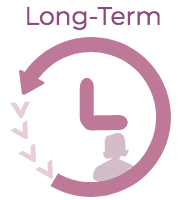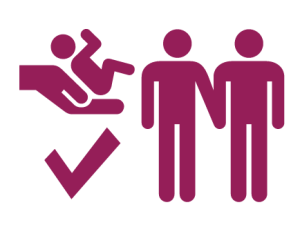How does FGM/C affect my physical health?

Undergoing female genital mutilation/cutting (FGM/C) can cause both immediate and long-term physical health consequences. You may experience some or none of the symptoms listed below. Discuss any symptoms you suspect could be the result of FGM/C with your health care provider.
How can FGM/C affect my physical health?
Does FGM/C affect my sexual health?
FGM/C can affect sexual health differently for each women. Some may experience pain, reduced arousal, or difficulty with orgasm due to scarring and changes in tissue flexibility, while others may not notice significant changes. Outcomes also vary by the type of FGM/C.
Studies show that FGM/C is associated with higher rates of pain during intercourse and decreased sexual satisfaction7,8 More recent research comparing different types of cutting found variations in sexual function among women.9
What should I know about pregnancy and FGM/C?
1. Talk to your health care provider.
If you are pregnant or planning to become pregnant, talk with your health care provider early. They may refer you to an ob-gyn who has experience caring for women affected by FGM/C. You can also access resources that help connect you with clinicians trained in FGM/C care.1
2. Be prepared for the health care provider to give you a physical exam.
During pregnancy, your health care provider may recommend a physical exam to understand how FGM/C may affect your pregnancy, labor, or delivery. The exam helps identify any scarring, narrowing, or discomfort that could increase the risk of prolonged labor, perineal tears, or the need for additional support during childbirth.123
This exam should always be done with your consent, at a pace that feels safe for you. Your provider should explain each step, allow you to pause or stop at any time, and offer an interpreter or support person if needed. Trauma-informed and culturally sensitive approaches are essential to ensuring your comfort and dignity.4
The goal of the exam is to support your health and birth plan, not to judge or shame you. Understanding your body’s anatomy allows your care team to provide safe, respectful, and individualized maternity care.5
3. Talk to your health care provider about definfibulation (for Type 3 FGM/C).
If you have Type 3 FGM/C, your health care provider may discuss deinfibulation, a minor procedure that gently opens the sealed vaginal area. This can make medical exams, sexual activity, and childbirth safer and more comfortable.12For pregnant women, deinfibulation may help reduce risks such as prolonged labor or severe tears during childbirth.3 You can choose to have the procedure before pregnancy, during pregnancy, or during labor, your provider can help you understand which timing feels right for you. Deinfibulation is your choice, and it should always be performed by trained clinicians who understand FGM/C and provide respectful, trauma-informed care.1
4. Prepare a birth plan that's right for you.
When you become pregnant, create a birth plan with your provider that includes your preferences, your hospital’s policies, and how FGM/C may affect your labor. Ask questions to understand all your options, including what procedures are available and what your hospital allows. For example, some hospitals allow water births while others do not.1314
5. Talk to your health care provider about postpartum care.
The six weeks after delivery are important for your health. Your provider will help you understand what to expect, including vaginal healing, soreness, bleeding, and mood changes. Women with FGM/C may have specific postpartum needs, so follow-up care is especially important. 15
6. Check out these additional resources:
Learn about pregnancy from A to Z → https://womenshealth.gov/pregnancy
Weekly changes in pregnancy → https://www.marchofdimes.org/pregnancy-week-week
Eating healthy foods → https://www.myplate.gov/life-stages/pregnancy-and-breastfeeding
Vaccines to protect your baby → https://www.cdc.gov/vaccines-pregnancy/index.html
Postpartum care → https://www.acog.org/womens-health/faqs/postpartum-care
In their own words
A survivor describes her experience speaking to a gynecologist about her constant urge to urinate:








